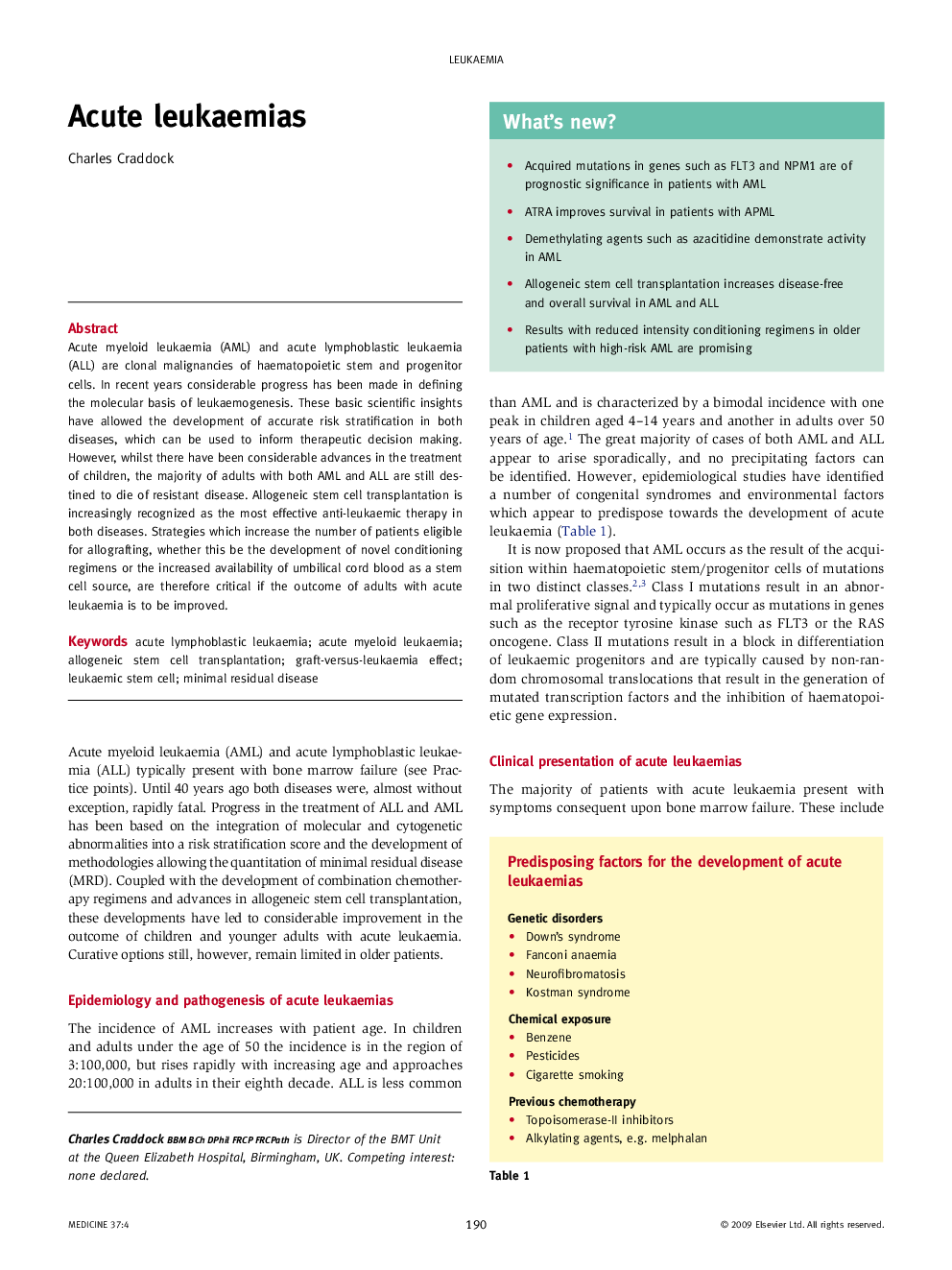| Article ID | Journal | Published Year | Pages | File Type |
|---|---|---|---|---|
| 3805436 | Medicine | 2009 | 5 Pages |
Acute myeloid leukaemia (AML) and acute lymphoblastic leukaemia (ALL) are clonal malignancies of haematopoietic stem and progenitor cells. In recent years considerable progress has been made in defining the molecular basis of leukaemogenesis. These basic scientific insights have allowed the development of accurate risk stratification in both diseases, which can be used to inform therapeutic decision making. However, whilst there have been considerable advances in the treatment of children, the majority of adults with both AML and ALL are still destined to die of resistant disease. Allogeneic stem cell transplantation is increasingly recognized as the most effective anti-leukaemic therapy in both diseases. Strategies which increase the number of patients eligible for allografting, whether this be the development of novel conditioning regimens or the increased availability of umbilical cord blood as a stem cell source, are therefore critical if the outcome of adults with acute leukaemia is to be improved.
